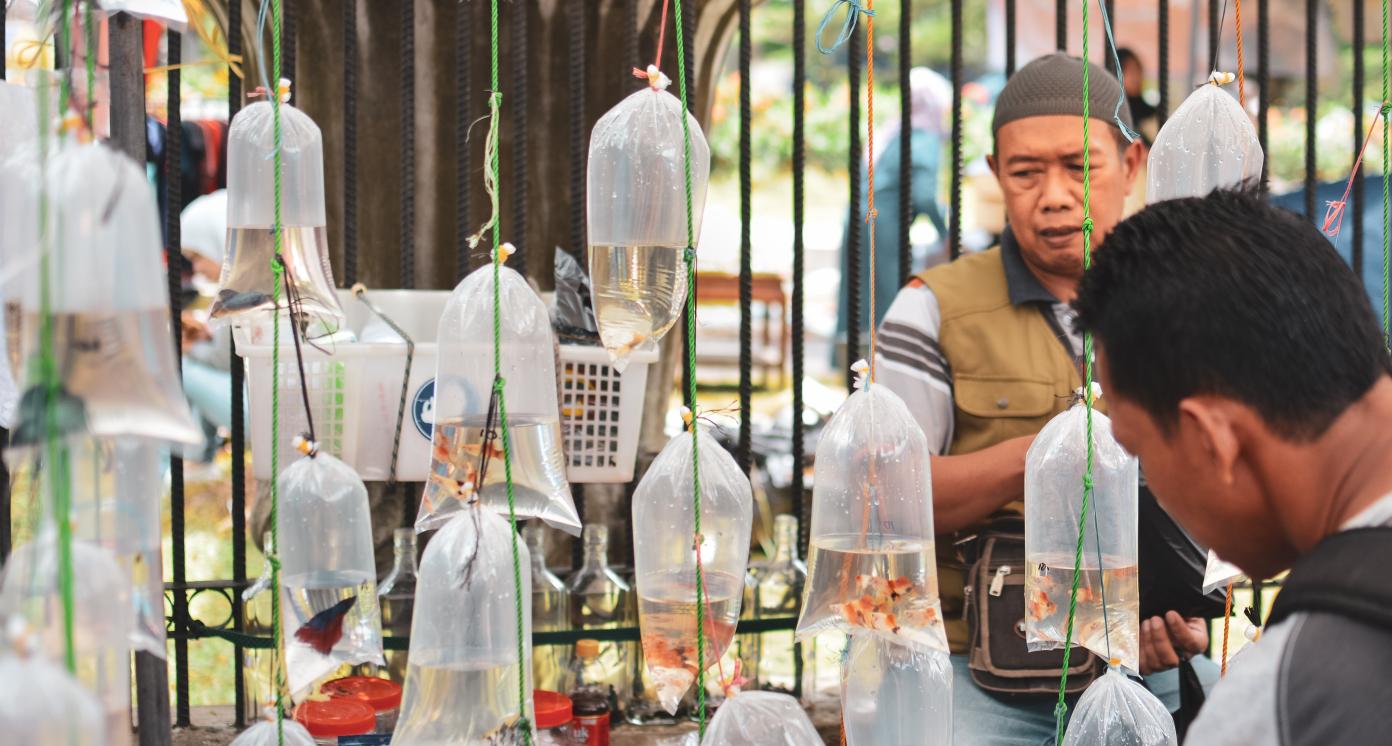Financing Solutions to Promote the Growth of Micro, Small & Medium Enterprises (MSMEs)
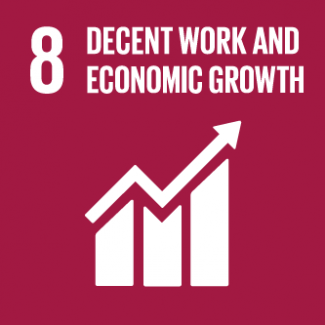
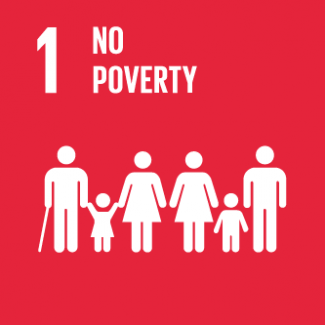
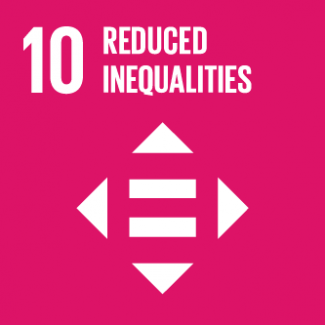
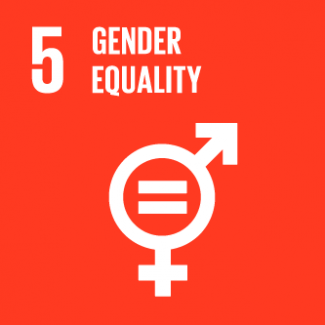
Business Model Description
Invest in B2C and P2P financing companies that form a link between lenders/investors and the borrowers. Lenders may seek to invest in MSMEs by offering affordable business loans to serve their working capital requirements, including invoice financing, supply chain financing, term loans and microloans. Examples of some companies active in this space are:
PT Mitrausaha Indonesia Grup (Modalku) is an SME digital financing platform in Indonesia that provides business financing to Micro, Small and Medium Enterprises (MSMEs) funded by individual and institutional lenders. Founded in 2016, Modalku offers various productive loans such as invoice financing, supply chain financing, term loans and microloans. In 2022, it raised USD 294m in Series C+ equity and debt lines led by SoftBank Vision Fund 2, with participation from VNG, Rapyd Ventures, EDBI, Indies Capital, Ascend Vietnam Ventures and existing shareholders like Sequoia Capital India and BRI Ventures. (17).
PT Lunaria Annua Teknologi (KoinWorks), founded in 2017, operates a peer to peer lending platform which offers loans relating to business, education, and health. It provides 18% interest rate and provision fund. As of 2020, it has raised USD 59.35 mn, including USD 10 mn from Lendable Ltd and USD 20 mn from East Ventures Pte. Ltd, PT Sinar Mas Digital Ventures and others (17).
Amartha (PT Micro Amartha Fintek), founded in 2010, is a peer-to-peer (P2P) lender that enables investors to find investment opportunities in MSMEs. In 2021, its valuation was USD 140 mn (18), as it raised USD 28 mn funding from Women’s World Banking Capital Partners II (WWB), MDI Ventures and other existing investors (Mandiri Capital Indonesia (MCI) and UOB Venture Management). (19)
Expected Impact
Affordable loans to promote growth of MSMEs and fuel domestic economic growth, improvement in unemployment level and financial inclusion.
How is this information gathered?
Investment opportunities with potential to contribute to sustainable development are based on country-level SDG Investor Maps.
Disclaimer
UNDP, the Private Finance for the SDGs, and their affiliates (collectively “UNDP”) do not seek or solicit investment for programmes, projects, or opportunities described on this site (collectively “Programmes”) or any other Programmes, and nothing on this page should constitute a solicitation for investment. The actors listed on this site are not partners of UNDP, and their inclusion should not be construed as an endorsement or recommendation by UNDP for any relationship or investment.
The descriptions on this page are provided for informational purposes only. Only companies and enterprises that appear under the case study tab have been validated and vetted through UNDP programmes such as the Growth Stage Impact Ventures (GSIV), Business Call to Action (BCtA), or through other UN agencies. Even then, under no circumstances should their appearance on this website be construed as an endorsement for any relationship or investment. UNDP assumes no liability for investment losses directly or indirectly resulting from recommendations made, implied, or inferred by its research. Likewise, UNDP assumes no claim to investment gains directly or indirectly resulting from trading profits, investment management, or advisory fees obtained by following investment recommendations made, implied, or inferred by its research.
Investment involves risk, and all investments should be made with the supervision of a professional investment manager or advisor. The materials on the website are not an offer to sell or a solicitation of an offer to buy any investment, security, or commodity, nor shall any security be offered or sold to any person, in any jurisdiction in which such offer would be unlawful under the securities laws of such jurisdiction.
Country & Regions
- Indonesia: Countrywide
Sector Classification
Financials
Development need
Since COVID-19, banks adopted a more conservative approach for lending to MSMEs, resulting in a decline in the number of MSME credit accounts (4.20%) with the sharpest decline in the number of Micro credit segment. (1) People in remote locations and those with low income (limited savings) mostly rely on informal sources for financial services. (2)
Policy
Financial Services Authority's (OJK) 2nd pillar of Structural Framework 2021-2025 focuses on the development of financial services ecosystem by increasing the role of FSS in supporting priority economic sectors, MSMEs, job creation and regional development, including directing all FSIs to expand services to MSMEs (especially in remote rural areas). (3)
Gender inequalities and marginalization issues
Indonesia has >22 mn female entrepreneurs, and majority of them face significant difficulties in accessing financial services (particularly bank loans), which limits the expansion of their businesses. (4) 51.4% women (vs. 46.2% men) have bank accounts.
80% female labor force is employed in informal sectors and millions of women lack access to financial services to address their particular needs. (5) Limited access to capital makes people living in rural areas even more marginalized. (6)
Investment opportunities introduction
Indonesia is home to 20% of all fintech companies in Southeast Asia which are expected to generate USD 8.6 bn in revenue over the next 5 years (by 2026). (7)
Access to e-money encourages urbanization by reducing transaction costs for remitting. 26% urban and 22% rural population uses digital financial services for online shopping (8).
Key bottlenecks introduction
Major issue tends to be readiness of players to comply with licensing requirements with new and constantly changing regulatory frameworks. Various business models of FinTech lending players result in differing capabilities, infrastructure setup, and needs.
Lack of financial literacy has trapped many consumers into an ecosystem of illegal P2P lending. (9)
Corporate and Retail Banking
Development need
Financing to MSMEs is still limited (3). IFC and WB estimate that the demand for credit by MSMEs in Indonesia was USD 165 bn (19% of GDP) while only USD 57 bn is currently available (10). In 2020, MSME's access to financial services is relatively low at 24.4%, while the proportion of MSME loans to total bank credit is 19.7% (11).
Policy
2020-24 National Plan stipulates the simplification of regulations as one of the strategies in implementing the Nawacita mission and achieving the targets of Indonesia Vision 2045. Simplifying all forms of regulation with the Omnibus Law approach, especially issuing the Employment Creation Act and including regulations related to MSME Empowerment, convenience and protection MSME (12).
Gender inequalities and marginalization issues
In 2016, 53% of micro, 51% of small and 34% of medium enterprises were owned by women. 40% women compared to 28% men consider bank procedures to be complicated.
Women experience constraints at the personal, household and social levels. Foremost, women felt handicapped by the pressure to balance their responsibilities at home and the need to focus on their business. Women generally devote a significant portion of their business income to household needs, which limits reinvestment in their business (13)
Women own and run >50% of MSMEs in Indonesia. However, COVID-19 has led to 2/3 of these MSMEs experiencing a decline in income, and 46% of the MSMEs owned by women in Indonesia are facing difficulty in paying bills and debts.
Investment opportunities introduction
MSMEs have significant contributions to Indonesia's economy (63.5 mn businesses, 60% of national income, 97% of total workforce) (14). In Oct 2021, outstanding credit for MSME reached USD 73.5 bn with NPL 4.3% (15). Previously, according to the WB 2017 Findex study, potential market for SMEs reached USD 10.4 bn (16).
Key bottlenecks introduction
The raise in the financial inclusion index has not been followed by a balanced increase in the financial literacy index. Meanwhile OJK's regulatory sandbox may discourage innovation in fin-tech.
Consumer Finance
Pipeline Opportunity
Financing Solutions to Promote the Growth of Micro, Small & Medium Enterprises (MSMEs)
Invest in B2C and P2P financing companies that form a link between lenders/investors and the borrowers. Lenders may seek to invest in MSMEs by offering affordable business loans to serve their working capital requirements, including invoice financing, supply chain financing, term loans and microloans. Examples of some companies active in this space are:
PT Mitrausaha Indonesia Grup (Modalku) is an SME digital financing platform in Indonesia that provides business financing to Micro, Small and Medium Enterprises (MSMEs) funded by individual and institutional lenders. Founded in 2016, Modalku offers various productive loans such as invoice financing, supply chain financing, term loans and microloans. In 2022, it raised USD 294m in Series C+ equity and debt lines led by SoftBank Vision Fund 2, with participation from VNG, Rapyd Ventures, EDBI, Indies Capital, Ascend Vietnam Ventures and existing shareholders like Sequoia Capital India and BRI Ventures. (17).
PT Lunaria Annua Teknologi (KoinWorks), founded in 2017, operates a peer to peer lending platform which offers loans relating to business, education, and health. It provides 18% interest rate and provision fund. As of 2020, it has raised USD 59.35 mn, including USD 10 mn from Lendable Ltd and USD 20 mn from East Ventures Pte. Ltd, PT Sinar Mas Digital Ventures and others (17).
Amartha (PT Micro Amartha Fintek), founded in 2010, is a peer-to-peer (P2P) lender that enables investors to find investment opportunities in MSMEs. In 2021, its valuation was USD 140 mn (18), as it raised USD 28 mn funding from Women’s World Banking Capital Partners II (WWB), MDI Ventures and other existing investors (Mandiri Capital Indonesia (MCI) and UOB Venture Management). (19)
Business Case
Market Size and Environment
> USD 1 billion
> 25%
Total number of MSMEs (2018) - 99.99% of business actors (64,199,606 business units) (23)
As of 2019, service sector was a major contributor (43.4%) to the country’s GDP, primarily driven by MSMEs. (24) Number of MSMEs reached 64.2 mn unit, with 61.07% contribution to GDP. MSMEs are able to absorb 97% of the total workforce, and reach 60.42% of the total investment in Indonesia. (25)
As per IFC, 54% of SMEs were interested in obtaining a bank loan. In 2014, potential demand for credit from women-owned SMEs was ~USD 6 bn. MSME Finance Gap (2017) of MSMEs was USD 165 bn with MSME Finance gap / GDP of 19% (13).
The average transaction value per user in the Alternative Financing segment is projected to amount to USD 4,535 in 2022. (22) High penetration of mobile internet users and >150 FinTech firms are the key drivers for Indonesia becoming one of the biggest digital economies in Asia. (23)
Indicative Return
The Neobanking segment is expected to show a revenue growth of 41.0% in 2023. (22)
Modalku has disbursed >3mn loans worth >USD 1 bn to Indonesian MSMEs. Amartha has grown exponentially to disburse loans of >USD 215 mn and reach more than 600,000 female micro entrepreneurs as of 2020. (23)
KoinWorks has turned profitable. In 2021, the performance of P2P lending through KoinP2P reached USD 493 mn, with a contribution of USD 195 mn. The Non Performing Assets [NPAs] at KoinWorks is still at 1.07%. (26)
Private Equity firms target 20-25% IRRs on their investment. Returns depend on stage of investment and the valuation at the time of exit. Example: Seed fund investors will earn a better return if they hold their investment, than the investors who enter at a later stage.
Investment Timeframe
Short Term (0–5 years)
KoinWorks, which started in 2017, has turned profitable and plans to raise Series C capital (26)
Ticket Size
> USD 10 million
Market Risks & Scale Obstacles
Business - Supply Chain Constraints
Market - Volatile
Impact Case
Sustainable Development Need
Support domestic industries: MSME focused lenders played a key role in financing fast-growing industries requiring urgent capital during Covid-19. This was particularly significant in the case of the healthcare supply chain, where new firms needed quick access to working capital loans. (23)
Simplify criteria for MSME loans. Applying for a traditional working capital loan requires 3 years of profit, 2-3 years credit history and collateral. P2P lenders require no collateral and determine credibility basis buyer’s strengths, cash flow, contracts with blue-chip companies. (23)
Address the digital gender gap, especially in IT education, to enable women to compete with their male counterparts. (28) Proportion of adults (aged 15-59 years) with information and communications technology (ICT) skills: Female - 60.60; Male - 67.88 (11)
Gender & Marginalisation
Promote growth of MSMEs which can significantly reduce the unemployment rate. (29) Unemployment rate in Indonesia increased from 5.30 in 2018 to 6.26 in 2021. (11) Proportion of MSMEs with access to financial services increased from 14.36% in 2012 to 24.40% in 2020 (11)
Increase financial inclusion across Indonesia. KoinWorks has grown its portion of lending in Sumatra, Bali, Kalimantan and East Indonesia to 30% of the total distribution, in addition to 70% realized in Java. (26)
Promote women empowerment by supporting women entrepreneurs. Amartha offers community based (grameen model) working capital loans (ranging from USD 200 to USD 700) to women in rural areas, along with financial literacy education and entrepreneurship training. (19)
Expected Development Outcome
Covid-19 has highlighted the need for promoting the growth of FinTech platforms offering digital lending solutions to maintain and support the recovery of MSMEs in Indonesia, (30) only 20% of which are currently bankable. (31)
Accelerating economic growth by ensuring that credit is accessible by MSMEs, by providing financial access through a wide range of innovative and interconnected financial service products, especially in digital marketplaces and peer-to-peer (P2P) lending. (23)
Ensure availability of capital for the underbanked and unleash potential economic activity, create job opportunities and generate growth in a more inclusive manner. Fintech-based lending can potentially fill the country’s existing financing gap of ~USD 75 bn. (31)
Gender & Marginalisation
Increase financial inclusion through FinTech which could be a great tool for providing financing for MSMEs, including underserved and women entrepreneurs. (6) Amartha targets the low income segment, i.e. ~200 mn Indonesians with low income of <USD 4.10 per day.
Growth of MSMEs by offering funding support for female entrepreneurs will result in job creation, encouraging the presence of female talent for careers in the fintech industry. 77% FinTech companies claim it is easier to find male talent than women talent. (32)
Provide opportunities for underserved businesses by adopting international best practices, particularly for MSMEs owned by women, to assist in supplementing household income, encouraging women's participation in the workforce and improving overall financial resilience. (19)
Primary SDGs addressed

8.10.1 (a) Number of commercial bank branches per 100,000 adults and (b) number of automated teller machines (ATMs) per 100,000 adults
8.10.2 Proportion of adults (15 years and older) with an account at a bank or other financial institution or with a mobile-money-service provider
Number of commercial bank branches per 100.000 adults: 14.16 in 2012; 17.67 in 2020 Number of ATM per 100.000 adults: 35.73 2012; 52.95 in 2020 (11)
Not available as on January-2022
ATM (per 100k people, in units): 56.3 units in 2021, 56.7 units in 2022, 57.1 units in 2023, 57.5 units in 2024 Branch (per 100k people, in units): 15.4 units in 2021, 15.3 units in 2022, 15.3 units in 2023, 15.3 units in 2024. (33)
Not available as on January-2022
Secondary SDGs addressed



Directly impacted stakeholders
People
Gender inequality and/or marginalization
Planet
Corporates
Public sector
Indirectly impacted stakeholders
People
Gender inequality and/or marginalization
Planet
Corporates
Public sector
Outcome Risks
Traditional banks with limited technological know-how, which are unable to evolve and compete with FinTech players due to slow implementation/enforcement of digital actions may get eliminated. (34)
Potential cyber attack (system's vulnerability to customer data theft and abuse) can impact the economy adversely with leakage of private customer information and confidential government data (6)
Risk of default (failure to pay loans) especially by first time MSME borrowers or fraud may also impact the efficiency of the system and result in a potential loss for investors or lenders. (6)
Potential risk of misinformation from over-leveraging MSMEs who may have taken loans from informal sources and not disclosed to the formal lender.
Gender inequality and/or marginalization risk: Considerable investment required for educating MSMEs, particularly from low resource settings on the benefits of preparing themselves for borrowing from formal lenders.
Impact Risks
Absence of accessible financing solutions can limit the growth of MSMEs, thereby restricting improvement in quality of life of the underserved / unbanked population, and hinder economic growth.
Without a centralized registry to provide visibility on MSME borrowing, scaling of such businesses may lead to over indebtedness. This challenge maybe amplified if majority of MSMEs are unregistered.
Gender inequality and/or marginalization risk: Lack of regulation and control may result in exploitation of underserved population.
Impact Classification
What
Provide affordable and convenient lending solutions to MSMEs to support their working capital needs
Who
Underserved; MSMEs benefit from affordable lending solutions; Population benefits from growth in employment opportunities
Risk
Utilization of digital technology without adequate customer protection measures may expose customers to cyber crime/fraud.
Contribution
Limited access to credit for MSMEs reduces Indonesia's GDP by ~USD 130 bn, equating to 14% of GDP. (35) Fintech lending can fill the existing financing gap of ~USD 75 bn. (31)
How Much
In 2018, total number of MSME actors was 64,199,606 business units (99.99% of total business actors). In terms of labor absorption, MSMEs absorb 116,978,631 people (97% of workforce). (21)
Impact Thesis
Affordable loans to promote growth of MSMEs and fuel domestic economic growth, improvement in unemployment level and financial inclusion.
Enabling Environment
Policy Environment
The 2021-2021 MPSJKI: is directed at enhancement of the FSS resilience and competitiveness through strengthening resilience and competitiveness, financial services ecosystem development, and digital transformation acceleration. (3)
The National Economic Recovery (PEN) program: will support MSMEs through Interest Subsidy for People’s Business Loan (KUR), and financing Support for Cooperatives and MSMEs (3).
National Strategy for Financial Market Development 2018-24 states the strategy to empower FinTechs, including: >Compiling digital innovation development roadmap >Issuing regulations for P2P lending >Support markets without access to equity >Developing a P2P lending ecosystem (36)
The 2021-2021 MPSJKI: OJK has undertaken several policies to encourage the development of MSMEs: (1) It directs all FSIs to expand services to MSMEs, especially in remote rural areas; (2) It continues to support distribution of People's Business Loan (KUR) with various schemes. (3)
Program Keluarga Harapan (PKH): Financial inclusion is accelerated through several strategies such as increasing access to formal financial services, increasing literacy and consumer protection, strengthening MSME's access to capital and development, and improving digital financial products and services (37).
Financial Environment
Financial incentives: According to Government Regulation Number 23/2018 (PPh Final PP 23), individual or corporate (MSME) taxpayer receive a 0.5% final income tax incentive. This can be done by submitting monthly realization report (43).
Fiscal incentives: According to MoF Regulation No. 105/PMK.05/2015 The GoI provides a 3% credit interest rate subsidies for individuals/MSMEs through Kredit Usaha Rakyat (KUR) program, ranging from USD 700-7,000. A total amount of USD 26 bn will be allocated in the 2022 state budget for this program (44, 45).
Other incentives: Article 23 of Law Number 36 of 2008 concerning Income Tax (PPh) states that interest income earned by lenders will be taxed at 15%. Compensation in the form of other services obtained by business actors is subject to Article 23 Income Tax, which is 2% of the profits earned. (46)
Regulatory Environment
Presidential Regulation No. 114/2020 on National Strategy for Financial Inclusion (SNKI) aims to encourage strengthening access to capital and support to MSMEs, as well as strengthening economic activities integration and inclusive finance through digital financial services. (38)
Risk management on fintech lending are regulated in BI Regulation No. 19/12/PBI/2017 on Financial Technology Organization on Payment System Supporting Market Investment and Risk Management Lending, Financing or Funding, and Capital Rising and Other Financial Services. (39)
POJK No. 77/2016 on Information Technology Based Credit Services (LPMUBTI) aims to support FinTech P2P lending platforms and protect consumers. Maximum amount of loan to a borrower is USD 140,000. This encourages the development of Fintech 2.0 and 3.0 (big data, blockchain) (40)
FinTech is categorized under Indonesia Standard Industrial Classification subcategory 64951 which includes provision, management and operation of financial services to enter into lending agreements in rupiah currency through an electronic system using the internet network. (41)
Lending-related regulations are contained in the Financial Services Authority Regulation (POJK) Number 77/POJK.01/2016 regarding Information Technology-Based Lending and Borrowing Services (LPMUBTI). (42)
Marketplace Participants
Private Sector
Corporates: PT Ammana Fintek Syariah (Ammana), PT Investree Radhika Jaya, PT SimpleFi Teknologi Indonesia (AwanTunai), Alami Technologies, PT Mitrausaha Indonesia Group (Modalku) Investors: STRIVE, Inc.; Jungle Ventures Pte. Ltd.; Monk's Hill Ventures; Amand Ventures Pte. Ltd.
Government
OJK, Ministry of Cooperatives and MSMEs, Ministry of Finance, Bank Indonesia, The National Team for the Acceleration of Poverty Reduction (Tim Nasional Percepatan Penanggulangan Kemiskinan or TNP2K)
Multilaterals
United Nations Development Programme (UNDP), Asian Development Bank (ADB), World Bank (WB), Deutsche Gesellschaft für Internationale Zusammenarbeit GmbH (GIZ)
Non-Profit
Akumindo (MSME association), Asosiasi Fintech Indonesia (AFTECH)
Public-Private Partnership
To accelerate distribution of social assistance during COVID-19, Ministry of Social Affairs cooperates with FinTech companies, with the support of Bank Indonesia (BI) and the Financial Services Authority (OJK).
Target Locations
Indonesia: Countrywide
References
- (1) OJK. 2020. BAGAIMANA UMKM & PERBANKAN DAPAT SUKSES DI ERA DISRUPSI EKONOMI & DIGITAL. https://www.ojk.go.id/id/data-dan-statistik/research/prosiding/Documents/Kajian%20Bagaimana%20UMKM%20dan%20Perbankan%20Dapat%20Sukses%20di%20Era%20Disrupsi%20Ekonomi%20dan%20Digital.pdf
- (2) SOFIA-Oxford Policy Management Ltd. 2017. Understanding people's use of financial services in Indonesia. https://www.bappenas.go.id/files/e2017943-e9b8-4452-ae8a-5f7c86b4a814/download
- (3) OJK. 2021. THE INDONESIAN FINANCIAL SERVICES SECTOR MASTER PLAN 2021-2025. https://www.ojk.go.id/id/berita-dan-kegiatan/publikasi/Pages/Master-Plan-Sektor-Jasa-Keuangan-Indonesia-2021-2025.aspx
- (4) Bamboo Capital Partner. 2020. Amartha – Bridging the financing gap for women entrepreneurs in Indonesia. https://bamboocp.com/amartha-bridging-the-financing-gap-for-women-entrepreneurs-in-indonesia/
- (5) WOMEN'S WORLD BANKING. 2019. Indonesia. https://www.womensworldbanking.org/country-strategies-indonesia/#keytrends
- (6) OJK. 2020. Supporting Financial Inclusion for MSMEs through FinTech. for https://ojk.go.id/id/berita-dan-kegiatan/publikasi/Documents/Pages/Financial-Inclusion-for-MSMEs-Through-Fintech/OJK%20Publication%20-Financial%20Inclusion%20for%20MSMEs%20through%20Fintech.pdf
- (7) Ayman Falak Medina. 2021. Opportunities in Indonesia’s Financial Technology Sector. https://www.aseanbriefing.com/news/opportunities-in-indonesias-financial-technology-sector/
- (8) J-PAL. 2020. Towards Inclusive Digital Finance in Indonesia (Inclusive Financial Innovation Initiative Whitepaper). https://www.povertyactionlab.org/review-paper/towards-inclusive-digital-finance-indonesia-inclusive-financial-innovation-initiative
- (9) PRAKARSA Policy Brief. 2020. The Risk of Over-indebtedness Amid COVID-19 Pandemic. https://responsibank.id/media/496087/policy-brief-23-eng-the-risk-of-over-indebtedness-amid-covid-19-pandemic.pdf
- (10) OJK. 2020. DIGITAL FINANCE INNOVATION ROAD MAP AND ACTION PLAN 2020-2024. https://www.ojk.go.id/id/berita-dan-kegiatan/publikasi/Documents/Pages/Publikasi-Materi-Digital-Finance-Innovation-Road-Map-dan-Action-Plan-2020-2024-serta-Digital-Financial-Literacy/Digital%20Finance%20Innovation%20Road%20Map%20dan%20Action%20Plan.pdf
- (11) Republic of Indonesia. 2021. Annexes Indonesia’s Voluntary National Review . https://sdgs.bappenas.go.id/laporan-voluntary-national-review-vnr-indonesia-2021/
- (12) Republic of Indonesia. 2020. Indonesia's 2020-2024 National Medium-Term Development Plan https://katalog.data.go.id/dataset/rpjmn-tahun-2020-2024/resource/23e26880-a84f-4443-a16f-1ddb3b69cfeb.
- (13) International Finance Corporation. 2016. Women-owned SMEs in Indonesia:A Golden Opportunity for Local Financial Institutions. https://www.ifc.org/wps/wcm/connect/region__ext_content/ifc_external_corporate_site/east+asia+and+the+pacific/resources/women-owned+smes+in+indonesia-a+golden+opportunity+for+local+financial+institutions
- (14) Bappenas. 2021. Indonesia's Voluntary National Review 2021. https://sustainabledevelopment.un.org/content/documents/280892021_VNR_Report_Indonesia.pdf.
- (15) OJK. 2021. Statistik Perbankan Indonesia - Oktober 2021. https://www.ojk.go.id/id/kanal/perbankan/data-dan-statistik/statistik-perbankan-indonesia/Pages/Statistik-Perbankan-Indonesia---Oktober-2021.aspx
- (16) ILO. 2019. Financing small businesses in Indonesia: challenges and opportunities. https://www.ilo.org/jakarta/whatwedo/publications/WCMS_695134/lang--en/index.htm
- (17) CIMB Niaga. 2020. Fintech Report 2020. https://branchlessbanking.cimbniaga.co.id/download/Fintech%20Report%202020.pdf
- (18) Dealroom. 2022. Amartha. https://app.dealroom.co/companies/amartha
- (19) MoneyPlus. 2021. Amartha Secures USD 28 Million New Funding Led by Women’s World Banking. https://blog.amartha.com/amartha-secures-usd-28-million-new-funding-led-by-womens-world-banking/
- (20) Awan Tunai. 2022. About Us. https://www.awantunai.co.id/aboutus
- (21) OJK and BCG. 2020. BAGAIMANA UMKM & PERBANKAN DAPAT SUKSES DI ERA DISRUPSI EKONOMI & DIGITAL. https://www.ojk.go.id/id/data-dan-statistik/research/prosiding/Documents/Kajian%20Bagaimana%20UMKM%20dan%20Perbankan%20Dapat%20Sukses%20di%20Era%20Disrupsi%20Ekonomi%20dan%20Digital.pdf
- (22) Statista. 2021. Digital Markets FinTech. https://www.statista.com/outlook/dmo/fintech/indonesia
- (23) The Jakarta Post. 2021. P2P lending: Setting new trends to reach MSMEs and women. https://www.thejakartapost.com/academia/2021/03/03/p2p-lending-setting-new-trends-to-reach-msmes-and-women.html.
- (24) Ken Research. 2020. Indonesia Online Loan and Insurance Industry Outlook to 2024 : Compelling Incumbents to pursue growth via Product Development & International Expansion. https://www.kenresearch.com/banking-financial-services-and-insurance/loans-and-advances/indonesia-online-loan-aggregator-industry-outlook/347119-93.html
- (25) Ministry of Finance. 2021. Pemerintah Terus Perkuat UMKM Melalui Berbagai Bentuk Bantuan. https://www.kemenkeu.go.id/publikasi/berita/pemerintah-terus-perkuat-umkm-melalui-berbagai-bentuk-bantuan/
- (26) Aziz Rahardyan. 2021. KoinWorks Ciptakan Ekosistem Layanan Finansial UKM Buat Penuhi Imbauan OJK. https://finansial.bisnis.com/read/20211030/563/1460042/koinworks-ciptakan-ekosistem-layanan-finansial-ukm-buat-penuhi-imbauan-ojk.
- (27) MicroCapital. 2020. MICROCAPITAL BRIEF: Accion Venture Lab Takes Equity Stake in Pintek of Indonesia, Provider of Online Loans to Students, Schools. https://www.microcapital.org/microcapital-brief-accion-venture-lab-takes-equity-stake-in-pintek-of-indonesia-provider-of-online-loans-to-students-schools/
- (28) Open Data Labs. 2018. Digital Literacy and Young Girls in Indonesia: Bridging the Gap. https://labs.webfoundation.org/digital-literacy-and-young-girls-in-indonesia-bridging-the-gap/
- (29) P. Eko Prasetyo. 2021. The Role of MSME on Unemployment in Indonesia. https://turcomat.org/index.php/turkbilmat/article/view/8944
- (30) Bisnis.com Media Digital. 2020. Kredit Plus Peroleh US$50 Juta dari IFC. https://finansial.bisnis.com/read/20201228/89/1335921/kredit-plus-peroleh-us50-juta-dari-ifc
- (31) The Jakarta Post. 2017. Fintech lending opens up opportunities for SMEs. https://www.thejakartapost.com/academia/2017/01/18/fintech-lending-opens-up-opportunities-for-smes.html
- (32) Indo Tekno. 2021. KoinWorks dukung partisipasi perempuan di industri fintech. https://www.indotelko.com/read/1615213445/koinworks-fintech
- (33) SEKRETARIAT NASIONAL SDGS. 2019. Indonesia's SDG National Action Plans-RAN SDGs 2021-2024. https://sdgs.bappenas.go.id/category/dokumen/rencana-aksi-nasional-ran/.
- (34) Statista. 2022. Largest banks in Indonesia as of Q1 2021, by total assets. https://www.statista.com/statistics/830681/indonesia-top-banks-by-total-assets/
- (35) Oliver Wyman and Modalku. 2016. Time for marketplace lending – Addressing Indonesia’s missing middle. https://www.oliverwyman.com/content/dam/oliver-wyman/global/en/2016/apr/Time_For_Marketplace_Lending.pdf
- (36) Ministry of Finance, Bank Indonesia, and OJK. 2018. National Strategy for Financial Market Development, 2018-2024. https://www.bi.go.id/en/publikasi/kajian/Documents/SNPPPK-BI-EN.pdf
- (37) Program Keluarga Harapan. 2018. APA ITU PROGRAM KELUARGA HARAPAN. https://pkh.kemensos.go.id/?pg=tentangpkh-1
- (38) Republic of Indonesia. 2020. National Strategy for Inclusive Finance. https://peraturan.bpk.go.id/Home/Details/154566/perpres-no-114-tahun-2020
- (39) Bank Indonesia. 2017. Penyelenggaraan Teknologi Finansial. https://peraturan.bpk.go.id/Home/Details/135776/peraturan-bi-no-1912pbi2017-tahun-2017
- (40) OJK. 2016. POJK No. 77/2016 on Information Technology-Based Lending Services. http://www.ojk.go.id/id/regulasi/otoritas-jasa-keuangan/peraturan-ojk/Pages/POJK-Nomor-77-POJK.01-2016.aspx
- (41) BPS. 2020. PERATURAN BADAN PUSAT STATISTIK NOMOR 2 TAHUN 2020 TENTANG KLASIFIKASI BAKU LAPANGAN USAHA INDONESIA. https://legalitas.org/KBLI-2020.pdf.
- (42) OJK. 2019. FAQ Fintech Lending. https://www.ojk.go.id/id/kanal/iknb/data-dan-statistik/direktori/fintech/Pages/FAQ-Kategori-Umum.aspx
- (43) Republic of Indonesia. 2018. Peraturan Pemerintah (PP) Nomor 23 Tahun 2018 tentang Pajak Penghasilan atas Penghasilan dari Usaha yang Diterima atau Diperoleh Wajib Pajak yang Memiliki Peredaran Bruto Tertentu.https://peraturan.bpk.go.id/Home/Details/82680/pp-no-23-tahun-2018
- (44) Ministry of Finance. 2015. Peraturan Kementerian Keuangan (PMK) Nomor 105/PMK.05/2015. https://peraturan.bpk.go.id/Home/Details/115502/pmk-no-105pmk052015
- (45) Fika Nurul. 2021. Pemerintah Naikkan Plafon KUR Jadi Rp 373,17 Triliun, Pinjaman Bisa hingga Rp 100 Juta. https://money.kompas.com/read/2021/12/30/104000726/pemerintah-naikkan-plafon-kur-jadi-rp-37317-triliun-pinjaman-bisa-hingga-rp
- (46) Republic of Indonesia. 2008. LAW OF THE REPUBLIC OF INDONESIA NUMBER 36 OF 2008. https://jdih.esdm.go.id/peraturan/UU%20No.%2036%20Thn%202008.pdf















